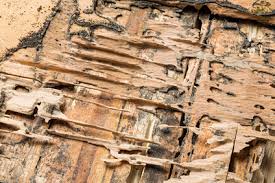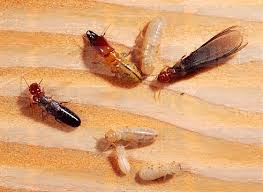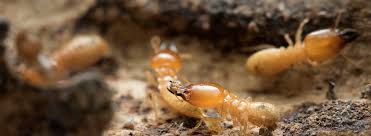Get This Report on Termite Control Pesticides Australia
Termites going through incomplete metamorphosis on the path to becoming alates type a subcaste in certain species of termite, functioning as potential supplementary reproductives. These supplementary reproductives only mature into main reproductives upon the passing of a king or queen, or when the primary reproductives are separated from the colony.6676 Supplementaries have the ability to replace a deceased primary reproductive, and there may also be more than just a single supplementary within a colony.53 Some queens have the ability to switch from sexual reproduction to asexual reproduction.
The neotropical termite Embiratermes neotenicus and several other related species create colonies that contain a primary king accompanied by a primary queen or up to 200 neotenic queens that had originated via thelytokous parthenogenesis of a founding principal queen.79 The form of parthenogenesis likely employed maintains heterozygosity in the passage of the genome from mother to daughter, thus avoiding inbreeding depression. .
Termites are detritivores, consuming dead plants in any level of decomposition. They also play a very important role in the ecosystem by recycling waste material such as dead wood, faeces and plants.8182 Many species eat cellulose, having a specialised midgut that breaks down the fibre.83 Termites are considered to be a significant source (11 percent ) of atmospheric methane, one of the prime greenhouse gases, generated in the breakdown of cellulose.84 Termites rely primarily upon symbiotic protozoa (metamonads) and other germs such as flagellate protists in their bowels to digest the cellulose to them, allowing them to absorb the end products for their own use.8586 Gut protozoa, such as Trichonympha, in turn, rely on symbiotic bacteria embedded on their own decks to produce some of the necessary intestinal enzymes.

Get This Report on Termite Control Pesticides Australia
The flagellates have been dropped in Termitidae.878889 Scientists' understanding of the relationship between the termite gastrointestinal tract and also the microbial endosymbionts remains rudimentary; what's true in all termite species, however, is that the workers feed the other members of the colony together with substances derived from the digestion of plant material, either in the mouth or anus.54 Judging from closely related bacterial species, it's strongly assumed that the termites' and cockroach's gut microbiota derives from their dictyopteran ancestors.90.
Certain species such as Gnathamitermes tubiformans have seasonal food habits. For instance, they might preferentially consume Red three-awn (Aristida longiseta) during the summertime, Buffalograss (Buchloe dactyloides) from May to August, and blue grama Bouteloua gracilis during spring, summer and autumn. Colonies of G. tubiformans consume less food in spring than they perform during autumn when their feeding activity is high.91.
Various woods differ in their susceptibility to termite attack; the differences are attributed to such factors as moisture content, hardness, and resin and lignin content. In one study, the drywood termite Cryptotermes brevis strongly preferred poplar and walnut woods to other forests which were generally rejected by the termite colony.
Some species of termite practice fungiculture. They maintain that a"garden" of specialised fungi of genus Termitomyces, that are nourished by the excrement of these insects. When the fungi are eaten, their spores pass undamaged through the intestines of their termites to complete the cycle by germinating in the fresh faecal pellets.9394 Molecular evidence suggests that the family Macrotermitinae developed agriculture about 31 million decades back.

All about Termite Control Pesticides
Originally living in the rainforest, fungus farming enabled them to colonise the African savannah and other new this environments, eventually expanding into Asia.95.
Depending on their feeding habits, termites are placed into two classes: the lower termites and higher termites. The lower vases predominately feed on timber. As wood isn't easy to digest, termites prefer to consume fungus-infected wood because it is easier to digest and the fungi are high in protein. Meanwhile, the bigger termites consume a wide variety of materials, including faeces, humus, grass, leaves and roots.96 The gut in the lower weeds contains many species of bacteria along with protozoa, whereas the greater termites only have a few species of bacteria with no protozoa.97.
